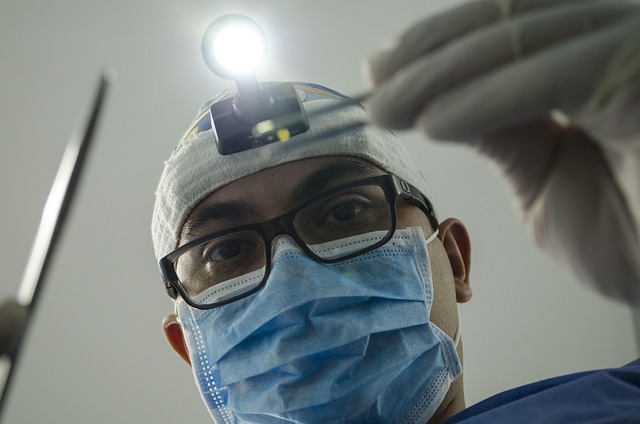In Pennsylvania, sexual abuse within hospitals is a critical issue requiring urgent attention from doctor-attorney collaborations. These legal experts advocate for victims, hold healthcare institutions accountable through robust legal strategies, and ensure patient safety protocols are in place. By combining medical expertise with legal knowledge, they seek justice, compensation, and reform, deterring potential perpetrators and protecting vulnerable patients across the state's healthcare system. Strong legislation, including mandatory reporting and background checks, further empowers this partnership to create a safer environment for all patients.
In Pennsylvania, holding hospitals accountable for sexual abuse cases is a pressing issue demanding urgent attention. This comprehensive article delves into the complex landscape of sexual misconduct within state hospitals, exploring critical questions surrounding accountability. We examine the symbiotic relationship between doctors and attorneys in combating these heinous acts and highlight effective legal strategies to ensure justice. Furthermore, we advocate for legislative reforms aimed at prevention, emphasizing the collaborative efforts of doctor-attorney partnerships in Pennsylvania’s healthcare sector.
Understanding Sexual Abuse Cases in Pennsylvania Hospitals

In Pennsylvania, sexual abuse cases within hospitals are a serious concern that requires careful consideration and legal action. These incidents can involve various healthcare professionals, including doctors, nurses, or any other hospital staff who exploit their positions of trust to commit assault. Hospitals in Pennsylvania have a legal obligation to maintain a safe environment for patients, and when this duty is breached, it may lead to civil liability. A doctor attorney in Pennsylvania plays a crucial role in advocating for victims’ rights by holding these institutions accountable through legal proceedings.
Understanding the dynamics of such cases is essential. Patients, especially those with limited mobility or cognitive impairments, are vulnerable to abuse, and hospitals must have robust protocols in place to prevent and address these incidents promptly. A thorough investigation into each case is necessary to determine liability, which may rest with the healthcare provider, the hospital administration, or both. Legal experts specializing in medical malpractice and personal injury can guide victims through this complex process, ensuring their rights are protected and that justice is served.
The Role of Doctor Attorney Collaboration

In the pursuit of justice for sexual abuse victims in Pennsylvania, the collaboration between doctors and attorneys plays a pivotal role. Doctor-attorney partnerships are essential in navigating complex legal landscapes, ensuring that medical expertise is seamlessly integrated into legal strategies. These professionals work together to gather evidence, interpret medical records, and provide expert testimony, all of which are crucial in building robust cases.
The synergy between doctors and attorneys in Pennsylvania enhances the overall effectiveness of legal proceedings related to sexual abuse. Their combined efforts help hold hospitals accountable, ensuring that victims receive the justice and compensation they deserve. This collaboration also serves as a powerful deterrent, discouraging potential perpetrators within healthcare institutions.
Legal Strategies for Holding Hospitals Accountable

In cases of sexual abuse within hospital settings, seeking justice and accountability is a complex process that requires strategic legal approaches. Doctor attorneys in Pennsylvania play a pivotal role in navigating these intricate matters. They employ various legal strategies to hold hospitals responsible for their failure to protect patients, especially vulnerable ones, from such heinous crimes.
One common method is through the examination of hospital policies and procedures related to patient safety and staff conduct. Doctor attorneys can highlight instances of negligence or lack thereof by presenting evidence that shows hospitals were inadequate in screening, supervising, or addressing potential risks. Additionally, they might invoke relevant Pennsylvania laws and regulations pertaining to healthcare facilities’ legal obligations regarding patient welfare, which can form a solid foundation for compensation and reform.
Ensuring Justice and Prevention Through Legislation

In Pennsylvania, holding hospitals accountable for sexual abuse cases is a critical aspect of ensuring justice and preventing future incidents. Legislation plays a pivotal role in this process by establishing clear guidelines and protocols that institutions must adhere to. Doctor-attorney collaboration becomes essential as legal experts can guide victims through the complex legal system while medical professionals provide crucial evidence and expertise related to sexual assault.
By implementing stringent laws, Pennsylvania can create a safer environment for patients. This includes mandatory reporting of suspected abuse, rigorous background checks for staff, and regular training on patient safety and consent. Such measures not only hold hospitals responsible but also empower doctor-attorney partnerships to combat sexual abuse, fostering a culture of transparency and accountability throughout the healthcare system in Pennsylvania.






